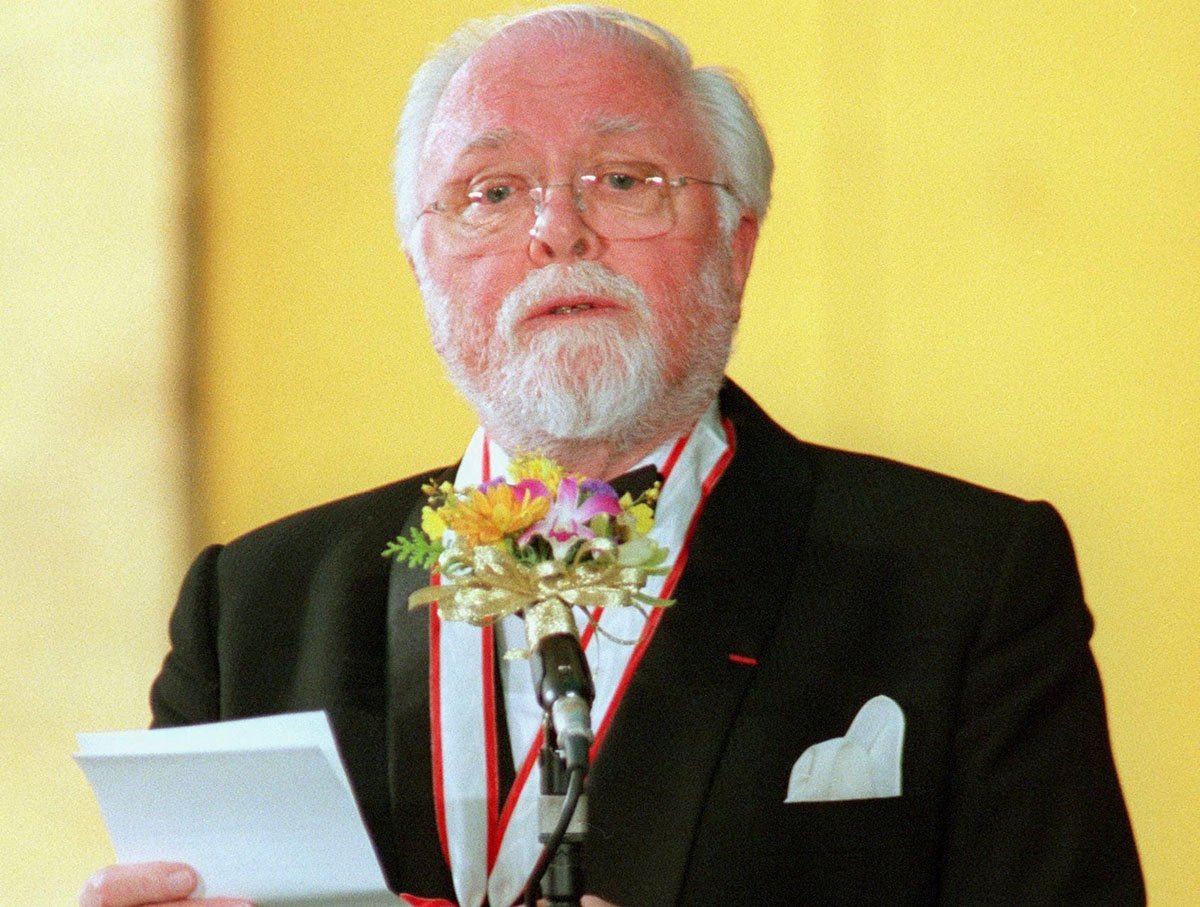
Taking turns as an actor, producer and director and picking up a mantlepiece full of awards along the way, Richard Attenborough was a much loved and long admired fixture in the British film industry. He died on Sunday at the age of 90.
From his first acting role in 1942 war movie In Which We Serve, through to the multiple Oscar-winning Gandhi, which he directed, and Steven Spielberg’s Jurassic Park, he dominated films on this side of the Atlantic.
A member of the House of Lords, he was also tireless in his charity work, including as a goodwill ambassador to Unicef, was president of the Royal Academy of Dramatic Art (RADA) and life president of Chelsea football club.
A man with strong family ties, he married his wife Sheila at 21, and lived in the same house for five decades in south-west London, an area that was also home to younger brother David, the famous naturalist and wildlife presenter.
But tragedy struck in 2004 when one of Attenborough’s three children, Jane Holland, and her daughter Lucy died in the Asian Boxing Day tsunami. Famously open with his emotions, he said he never quite got over their deaths.
Born in Cambridge in August 1923, he made his big screen debut in 1942 with In Which we Serve, the Noel Coward-David Lean tribute to the Royal Navy at war, and appeared in more than 60 films over the next 50 years.
The clean-cut young Attenborough became a regular feature in the cheerful, stiff upper-lip cinema of the postwar years, but he achieved greater distinction in murkier roles, particularly as the villain Pinkie in the 1947 adaptation of Graham Greene’s novel Brighton Rock.
By the 1960s he had come to the attention of Hollywood and obtained regular character roles in such as films as John Sturges’s war epic The Great Escape and Robert Aldrich’s Flight of the Phoenix.
He had also acquired a taste for production, forming his own company with Bryan Forbes to make The Angry Silence and other social realist films such as Forbes’ own The L-Shaped Room.
In 1962 Attenborough was approached by an associate of the family of Mahatma Gandhi about making a film about the life of the founder of independent India.
Although he had no familiarity with the subject, or with India, he met Pandit Nehru and his daughter Indira Gandhi the following year.
It would take another two decades for the project to be realised by 1980 Attenborough had secured the money, and Gandhi became his biggest success.
The 1982 film won eight Oscars, including best director and best actor for Ben Kingsley, five Golden Globes, five Baftas (the British Academy of Film and Television Art) and brought him world acclaim.
By this point Attenborough was an old hand at directing — his first attempt in 1969 was Oh! What a Lovely War, a satire set on Brighton Pier- and he later delved further into patriotism with the 1972 Young Winston, the first of what was to become a lengthy series of biopics.
After Gandhi, he tried his hand at something much more light-hearted in A Chorus Line (1985), before turning back to the weightier, though politically-safe, biopic Cry Freedom (1987), about murdered anti-apartheid activist Steve Biko.
Other projects included Chaplin (1992), a critical flop, the well-crafted weepie Shadowlands (1993) about the writer C.S. Lewis, and an account of the early years of Ernest Hemingway, A Time to Love (1997).
Attenborough stayed behind the camera throughout the 1980s, but was enticed back onto the big screen by for Spielberg’s dinosaur blockbuster Jurassic Park in 1993 and its sequel.
As he passed 80, Attenborough slowed down but kept working, including writing his memoirs,Entirely Up to You, Darling, with close friend Diana Hawkins.
Towards the end of his life Attenborough moved into a care home with his wife.
Bollywood Remembers The Maker Of Gandhi
Anil Kapoor: I learnt more about the Mahatma from Attenborough's Gandhi than the history lessons in school. Unforgettable, honest & inspirational!
Anupam Kher: Had the honour of meeting Sir Richard Attenborough during the casting of Gandhi. He was a wonderful human being & a Great director. RIP
Shobhaa De: Richard Attenborough convinced the world that a Mahatma did indeed walk the earth. R.I.P.
Rakeysh Omprakash Mehra: One of the greats of cinema Lord Attenborough is no more Brighton Rock to Jurassic park. A bridge to far to Gandhi — He lives for ever.
Rahul Bose: Still remember Richard Attenborough's tribute to Mahatma Gandhi when Gandhi won best film at the Oscars. R.I.P.
Sanjay Gupta: He made my favourite Indian film - Gandhi. RIP. Lord Richard Attenborough Passes Away at 90.
Published in The Express Tribune, August 26th, 2014.
Like Life & Style on Facebook, follow @ETLifeandStyle on Twitter for the latest in fashion, gossip and entertainment.
COMMENTS (1)
Comments are moderated and generally will be posted if they are on-topic and not abusive.
For more information, please see our Comments FAQ
1736495349-0/Untitled-design-(22)1736495349-0-405x300.webp)
1736494948-0/tesla-(2)1736494948-0-165x106.webp)


1736492771-0/Untitled-design-(21)1736492771-0-165x106.webp)
1736490336-0/sidra--(58)1736490336-0-270x192.webp)
1736489351-0/sidra--(57)1736489351-0-270x192.webp)


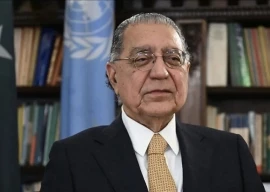

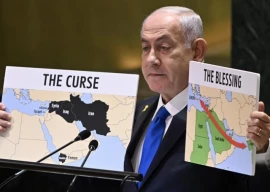
1736332856-0/Untitled-design-(20)1736332856-0-270x192.webp)
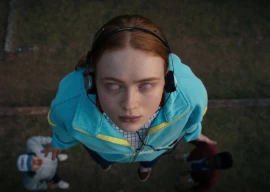
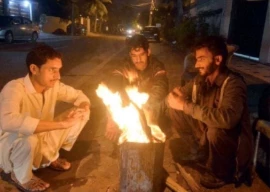

1736334465-0/sidra--(45)1736334465-0-270x192.webp)






Gandhi was the most outlandish indian propaganda attempt ever. But it didn't fool anyone.